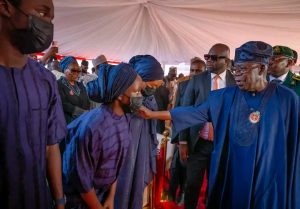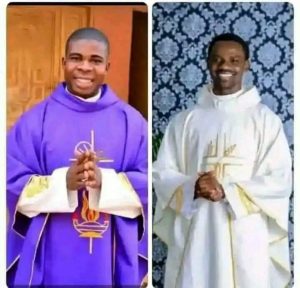Chimamanda Adichie to Headline Inaugural ‘Things Fall Apart’ Festival Celebrating Achebe’s Legacy
In what is poised to be a momentous cultural and literary milestone, internationally celebrated Nigerian author and public intellectual Chimamanda Ngozi Adichie has been announced as the keynote speaker for the maiden edition of the Things Fall Apart Festival, scheduled to take place in Enugu from June 29 to July 5, 2025.
The festival, which expands upon the annual Things Fall Apart Day observance, is organized by the Centre for Memories – Ncheta Ndigbo, an institution devoted to preserving and promoting Igbo memory, history, and cultural identity. This inaugural festival is envisioned not only as a tribute to Chinua Achebe, the literary icon who authored Things Fall Apart, but as a dynamic and evolving celebration of African intellectual heritage, storytelling, and collective identity.
For Chimamanda Adichie, author of critically acclaimed novels such as Purple Hibiscus, Half of a Yellow Sun, and Americanah, her role in the festival is far more than ceremonial. It marks what she describes as a literary pilgrimage and homecoming of the heart. Adichie, who has long cited Achebe as one of her primary literary influences, will headline the event with a keynote lecture titled, “Masculine, Feminine, Human – The Dialogue of Complements in Things Fall Apart.”
The lecture is expected to delve into the often-overlooked gender dynamics in Achebe’s groundbreaking novel. Adichie will explore the nuanced interplay of masculinity and femininity within the narrative, how these themes reflect pre-colonial Igbo society, and their continued relevance in today’s cultural and political conversations about gender and identity.
YOU MAY READ
Chimamanda Ngozi Adichie: A Life of Literature, Advocacy, and Growth
Speaking from her home in Abba, Anambra State, during a pre-festival press briefing, Adichie said, Achebe did not only give us a mirror with which to see ourselves, but he handed us a compass with which to navigate the often treacherous terrain of colonial memory, cultural loss, and modern identity. Things Fall Apart was the first novel that made me understand that my world was worthy of literature. To revisit it now, in this communal setting, is to return to a source of both fire and water.
The Things Fall Apart Festival is more than a series of lectures and exhibitions. It is designed as a week-long cultural immersion, a curated experience that brings together writers, dramatists, poets, scholars, artists, and activists under the shared umbrella of memory and imagination.
According to Dr. Ifeanyi Maduka, executive director of the Centre for Memories, the vision of the festival is to elevate Achebe’s legacy beyond academic study into public cultural experience. We want this to be a festival that celebrates not only Things Fall Apart as a literary classic but Achebe’s entire philosophy of literature as a tool for societal change and cultural preservation, Maduka explained.
The festival will feature dramatic stage adaptations of Achebe’s works, including Arrow of God and No Longer at Ease, as well as community dialogue forums examining postcolonial identity, tradition, and the role of literature in national consciousness.
One of the most ambitious and visually captivating elements of the festival will be the re-imagining of Umuofia, the fictional Igbo village at the center of Things Fall Apart. Organizers plan to reconstruct a temporary village compound on the grounds of the Institute of African Studies in Enugu, complete with thatched huts, community meeting spaces, a symbolic shrine, and a central marketplace.
Traditional masquerades from various communities in southeastern Nigeria will perform in daily sessions, with the Ajofia masquerade—a central spiritual figure in Things Fall Apart—set to make a grand entrance on the third day of the festival.
The cultural reenactment will not only serve as a form of visual storytelling but as an intergenerational memory project. Festival visitors will be guided through memory walks that recreate significant scenes from the novel, narrated by actors and griots trained in traditional orature.
It’s not just a visual spectacle, said Chika Umeadi, artistic director for the festival. It’s also a pedagogical experience—young people will not just read Achebe in class; they will live his world.
The festival will also host a special screening and retrospective panel on the 1987 Nigerian Television Authority (NTA) adaptation of Things Fall Apart. The adaptation, which introduced a generation of Nigerians to the character of Okonkwo in vivid dramatic form, starred veteran Nollywood actor Pete Edochie in what remains one of his most iconic roles.
Edochie, now regarded as one of the patriarchs of Nigerian film, is expected to make a special appearance at the festival and participate in a panel discussion titled “From Umuofia to Nollywood: Achebe’s Influence on Nigerian Visual Storytelling.”
Younger actors and filmmakers will also explore how Achebe’s narrative forms and themes shaped the early ethos of Nollywood and continue to resonate in contemporary African cinema.
The Centre for Memories has also prioritized youth engagement as a critical dimension of the festival. In partnership with the Enugu State Ministry of Education, a state-wide essay competition has been launched for secondary and tertiary students, themed “When Things Fall Apart Today: Reimagining Unity, Culture, and Power.”
Winners will receive scholarships, publication opportunities, and mentorship from some of Nigeria’s most prominent literary figures.
The festival will also include a tech pavilion showcasing innovative digital tools for preserving African oral histories and indigenous languages. One of the projects, Ndị Ncheta, a collaborative app for intergenerational storytelling in Igbo communities, will be unveiled during the event.
Workshops on digital archiving, AI-assisted storytelling, and the use of virtual reality for reconstructing historical scenes are scheduled, with backing from sponsors including the Ford Foundation and the Goethe-Institut.
Choosing Enugu as the venue for this historic festival was both symbolic and strategic. Known as the coal city, Enugu has long served as a crucible of Igbo political, intellectual, and cultural life. It was in Enugu that many of Nigeria’s pioneering writers, artists, and musicians converged in the post-independence era.
YOU MAY READ
Renowned Nigerian author, Chimamanda Adichie reveals why she didn’t announce the birth of her twin sons.
Achebe himself spent considerable time in the region, serving as Director of External Broadcasting for the Nigerian Broadcasting Corporation in Enugu during the early 1960s. The city also houses significant archives related to the Biafran war, an event that deeply impacted Achebe’s life and work.
Enugu is both past and future, said Dr. Maduka. It is the city of coal, but also the city of fire—where resistance was kindled, and memory refuses to die.
In a statement issued from their home in Ogidi, Anambra State, the Achebe family expressed their full support for the festival and thanked the organizers for creating a space that captures the depth and diversity of Chinua Achebe’s legacy.
We are pleased that this festival is not only celebrating Things Fall Apart, but also seeking to engage with its deeper themes—of identity, conflict, cultural dignity, and the meaning of being human, said Chidi Achebe, Chinua Achebe’s son and a prominent public health advocate based in the United States.
The family has pledged to contribute rare manuscripts, family photographs, and first-edition books to the festival’s traveling exhibition titled Achebe: A Life in Letters.
While this is the first full-scale Things Fall Apart Festival, the organizers are planning for it to become an annual event. The long-term goal is to rotate the festival across African cities and diaspora communities, with each edition taking on new themes drawn from Achebe’s wide-ranging works and ideas.
Future editions may explore topics such as the African writer and postcolonial statehood (A Man of the People), the Biafran conflict (There Was a Country), and literary responses to corruption and failed leadership.
The African literary canon is rich, but few writers shaped it with the deliberate moral clarity of Achebe, said Adichie. We must build not monuments to him, but movements—movements of thought, of action, of cultural reawakening.
The final day of the festival will feature a night vigil titled Uche & Uwa (Conscience & World)—a candle-lit gathering at the Centre for Memories courtyard, where excerpts from Achebe’s works will be read aloud by schoolchildren, elders, and guest artists in multiple languages.
The vigil will end with the symbolic lighting of the Ogirishi flame, using the sacred tree referenced in Igbo mythology as a spiritual connector between the living and the ancestors.
The flame will be lit by Adichie and Pete Edochie, as the festival choir chants a medley of ancient folk songs and modern compositions based on Achebe’s poetry.
As Nigeria grapples with questions of nationhood, cultural loss, and fractured identity, Achebe’s words remain a lighthouse in stormy waters. His work does not offer easy answers but challenges us to confront the brokenness and the beauty of our shared story.
The Things Fall Apart Festival is not merely an event; it is a reckoning. It is a call to memory, to imagination, and above all, to action.
As Adichie prepares to take the stage at the inaugural edition, she reminds us: Achebe did not just write us into the world. He wrote the world into us.





